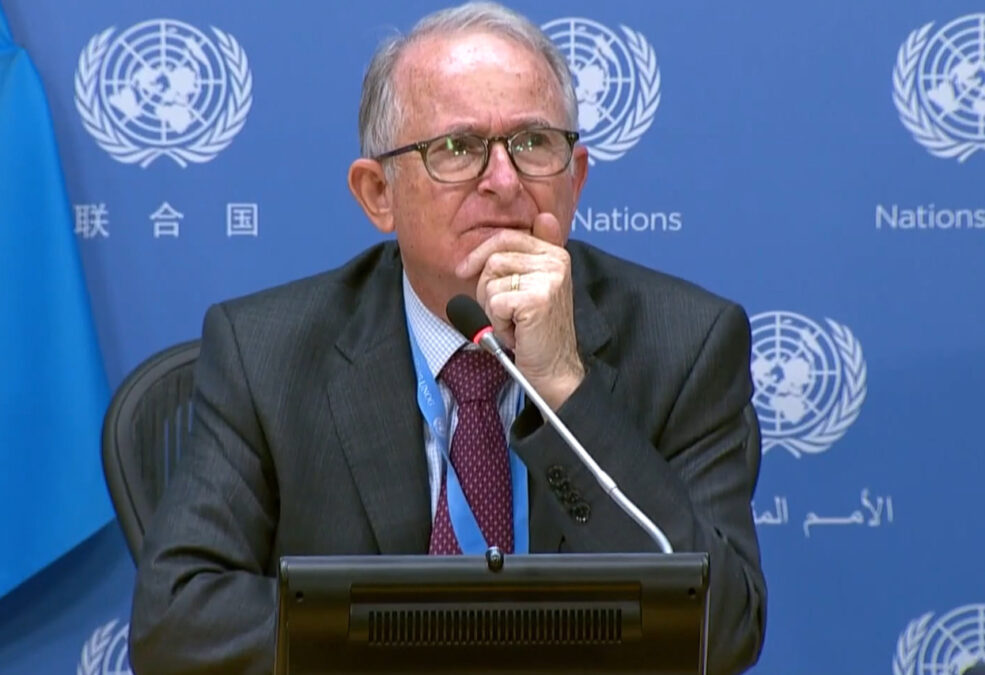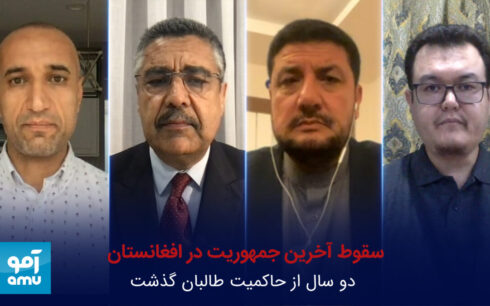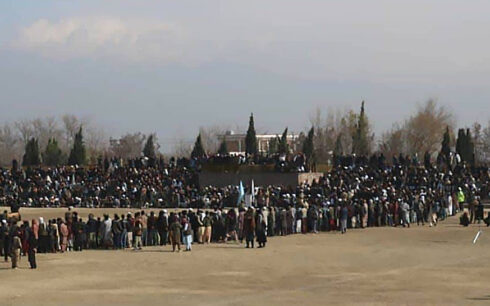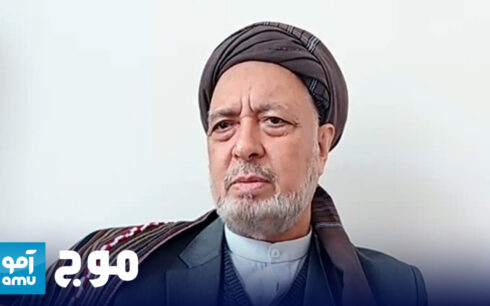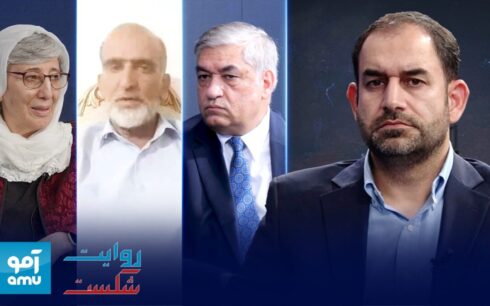Two years following their rise to power in Afghanistan, the Taliban continues to egregiously violate human rights, perpetuating a system of discrimination, exclusion, and subjugation against women and girls, asserted UN experts in a statement on Monday.
The discrepancy between professed promises and the reality of Taliban has expanded, revealing the misguided notion of a “reformed” Taliban, the experts cautioned.
Signatories of the statement include Richard Bennett, Special Rapporteur on Afghanistan; Mary Lawlor, Special Rapporteur on Human Rights Defenders; and Fernand de Varennes, Special Rapporteur on Minority Issues, among others.
Marking the two-year anniversary since the Taliban’s ascension to power in Afghanistan, the experts issued a joint statement, which reads, “Two years ago, the Taliban seized control of Afghanistan, and since then, the policies they’ve implemented have systematically eroded an array of human rights, including the rights to education, employment, and the freedoms of expression, assembly, and association.”
The experts underscored that consistent and credible accounts of summary executions and acts tantamount to enforced disappearances, coupled with widespread arbitrary detentions, torture, and ill treatment, as well as arbitrary displacements, have heightened concerns.
The experts said that women and girls, ethnic, religious, and other minorities, individuals with disabilities, displaced persons, LGBTQ+ individuals, human rights defenders, civil society actors, journalists, artists, educators, and former government and security officials have been disproportionately affected.
Despite assertions by the Taliban that any restrictions, especially in terms of educational access, would be temporary, the situation on the ground demonstrates an accelerated, systemic, and pervasive system of segregation, marginalization, and persecution, the experts noted.
Comparatively, to the previous year, the Taliban has deepened their implementation of discriminatory measures with the apparent intent to subjugate women and girls, a degree of domination that has escalated to an extent constituting gender persecution, a crime against humanity, according to the experts. This situation has spurred discussions about the potential need for “gender apartheid” codification, the experts said. The Taliban barred women from working at NGOs in December, followed by a ban on their employment at the UN in April. Reports suggest that girls above the age of 10 have been prohibited from studying in several provinces, a significant change from the prior restriction starting at Grade 6. Women’s spaces, including beauty salons run by and for women, have been recently ordered to close. Afghan women and men, including community leaders and educators, have expressed deep dismay over the interruption of girls’ and women’s education.
Beyond these specific instances, pledges toward a more inclusive governance structure remain unrealized. The amnesty for former government and military officials has been breached, guidelines to prevent torture and ill treatment in detention centers are frequently disregarded, minorities encounter marginalization and discrimination despite promises of inclusion, and legal professionals, judges, prosecutors, and others involved in the judicial system face considerable security risks. The Taliban has introduced inhumane and degrading punishments, such as stoning, flogging, and burying under walls, in contravention of international human rights norms. The notion of a “reformed” Taliban has been fundamentally challenged.
The experts’ asked the Taliban to:
• Swiftly reverse the treatment of women and girls,
• Enable women’s participation in economic activities and essential services for women and girls,
• Ensure the enjoyment of all human rights by women and girls, including freedom of movement and political participation,
• Reopen schools and universities for girls and women at all levels,
• Uphold the general amnesty for former government and security officials and civil society members,
• Halt arbitrary detention, acts akin to enforced disappearances, torture, and ill-treatment,
• Facilitate unhindered access for human rights monitors and humanitarian actors to detention sites,
• Revert actions that restrict civic space, permitting civil society organizations and media professionals to function freely,
• Establish stringent measures to prevent discrimination against ethnic and religious minorities and guarantee their meaningful participation in decision-making processes.
The past two years have witnessed the deterioration of both humanitarian and human rights conditions, the experts said. The UN cautions against “critical funding gaps” in its humanitarian response, which could precipitate the discontinuation of community-based educational initiatives, reduced food assistance, and the closure of health facilities, among other adverse outcomes, they added.
They said that in light of these dire circumstances, compounded by numerous restrictions and a dearth of employment prospects, individuals might resort to harmful coping mechanisms such as joining criminal or armed groups. Many Afghans have been compelled to leave the country out of sheer desperation, the experts underscored. While countries hosting Afghan refugees deserve commendation, many refugees remain in precarious situations.
The current state of affairs need not be a foregone conclusion. To engender change, the international community must commit to Afghanistan with renewed resolve and unity, undertaking decisive actions:
• Political engagement with Afghan stakeholders should be centered around human rights and gender integration,
• Address the funding gap in the humanitarian response plan, ensuring aid directly reaches Afghans, including displaced populations and host communities, while navigating exemptions within sanction frameworks,
• Support mechanisms for investigating and addressing human rights violations to prevent their recurrence and tackle impunity,
• Recognize the treatment of women and girls by the Taliban as gender persecution,
• Extend refugee status to all Afghan women and girls based on human rights violations resulting from discriminatory policies instituted by the Taliban,
• Strengthen commitment to Afghan refugees and migrants, granting refugee status on grounds of gender persecution, receiving them with dignity, and protecting them from refoulement and mistreatment,
• Support initiatives by Afghan women leaders, thinkers, and civil society groups both within and outside Afghanistan that champion human rights values and principles.

